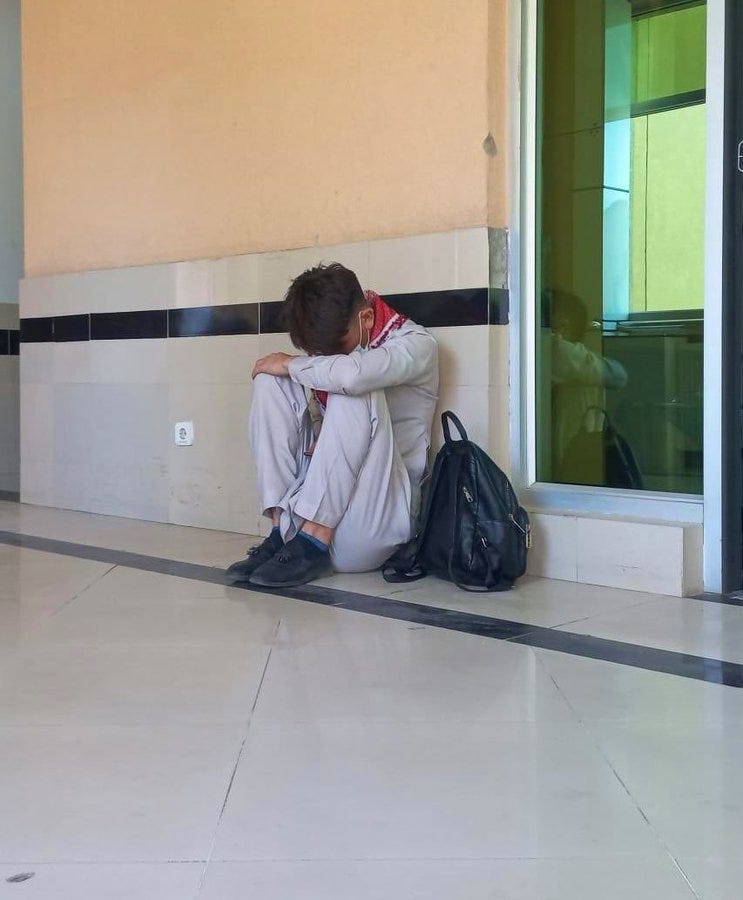When I turned the key in the ignition Friday morning, along with the sound of the car’s engine came two other sounds — the air conditioner, which I turned off, and the radio, which I turned down but left on.
My grandson as with me and we both listened avidly.
It was the local sports radio channel, with a popular call-in show featuring the usual suspects — hosts who babble on in a half-witted manner punctuated by calls from audience members who often sound like they must have dropped out of school somewhere around the 8th grade.
Normally I avoid this type of thing like the plague, probably because it makes me feel embarrassed to be a man, especially a man who likes sports. Why do so many have to sound so dumb when we discuss this area of great passion to us?
But I kept listening because the topic was simply too salacious to ignore.
Draymond Green, one of the stars of the local NBA team, the Golden State Warriors, had been caught on video slugging a teammate during practice. The reason for this attack was unknown at the time of the radio program. And Green and the Warriors are not just any basketball team, they are the reigning NBA champions, four times over, arguably one of the greatest pro streaks for any franchise of any time.
Green is the enforcer on the team, the bad guy who gets under his opponents’ skin. He gets lots of technical fouls and occasionally is ejected from games. He is perhaps the most hated player in the NBA, outside of the Bay Area of course. He is also a very talented basketball player and a key to the team’s winning streak.
At the time I’m publishing this, there’s no word yet on how the Warriors are going to handle this situation.
Not as a comment on Green specifically, but in life generally, I’ve always been the type of person who believes in second chances. But I also have learned that once you give certain personalities a second chance, they may require a third, a fourth, and so on. At some point, you realize all you are doing is enabling a repeat offender.
I don’t know if this is one of those situations for Green and the Warriors but it may be. There are certain lines you don’t cross in male culture. This is one of them.
CURATED LINKS:
The most terrifying case of all is about to be heard by the US supreme court — If the court upholds the rogue ‘Independent State Legislature’ theory, it would put the US squarely on the path to authoritarianism (Guardian)
Putin confronted by inner circle member over Ukraine war, U.S. intelligence finds (WP)
Biden says risk of "Armageddon" highest since Cuban Missile Crisis as tensions rise with Russia (CBS)
World must act now to stop Russia nuclear threat - Zelensky (BBC)
VIDEO: U.N. Nuclear Watchdog Rejects Russia’s Claim to Zaporizhzhia Plant
(Reuters)
Blunt Criticism of Russian Army Signals New Challenge for Putin (NYT)
A Russian-installed official in Ukraine suggested Putin's defense minister should consider killing himself due to the shame of the defeats in the Ukraine war, an astonishing public insult to Russia's top brass. (Reuters)
Putin’s path: from pledges of stability to nuclear threats (AP)
Russian troops are releasing video on social media that reveal what's really going on behind the lines (CNN)
'Woman, life, liberty': Iranians on why they'll risk beatings and death for change. (USA Today)
In echo of Cold War, Nobel Peace Prize goes to Ukraine, Russia, Belarus rights campaigners (Reuters)
Ukrainian, Russian and Belarusian winners of Nobel Peace Prize 2022 (BBC)
Justice Dept. Is Said to Believe Trump Has More Documents (NYT)
Global economy sailing into a 'perfect long storm' (Politico)
A Moon of Saturn May Be More Habitable Than Expected (Smithsonian)
Early signs a new U.S. COVID surge could be on its way (NPR)
A new COVID wave appears to be brewing in Europe as cooler weather arrives, with public health experts warning that vaccine fatigue and confusion over types of available vaccines will likely limit booster uptake. (Reuters)
Residents of Florida who had to evacuate their homes due to Hurricane Ian are returning to assess the damage to their properties, despite limited access to some areas. The number of storm-related deaths continue to rise, more than a week after the storm made landfall in southwest Florida. [AP]
Easter Island statues damaged by fire (BBC)
Amazon loses London-sized area of rainforest in a month with Bolsonaro’s reign under threat (Guardian)
Ninety Years Ago, This Book Tried to Warn Us — A 1933 novel on the Nazi rise to power is still relevant today. (NYT)
A Las Vegas newsroom set out to investigate a colleague’s killing. Now a suspect is behind bars. (WP)
For Draymond Green, the video changes everything (The Athletic)
A LOT of repercussions will come out of the Draymond Green-Jordan Poole altercation (ESPN)
Can Of Soda In Freezer Realizing Owner Never Coming Back For It (The Onion)
